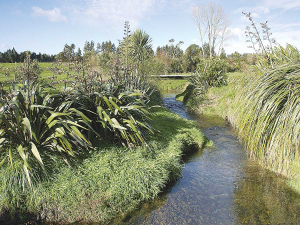OPINION: The Otago Regional Council needs to be honest about what the new proposed freshwater rules might mean for our community and how much it could cost local ratepayers.
Since the release of draft regulations there have been significant changes made, but because of the secretive nature of the consultation process the community is completely in the dark.
This is serious stuff and there needs to be some urgency. The rules are scheduled to come into force in October and will have immediate legal effect.
Our local councils need to front up and let our community know how they plan to give effect to Te Mana o te Wai and how much it’s going to cost us. Confidential information provided to Federated Farmers suggests the costs will be more than $110 million for just two small Otago towns – equating to more than $50,000 per ratepayer.
If similar costs can be expected across the rest of Otago, we’re talking about a multi-billion-dollar spend for the region that will have huge financial implications for residents.
The regional council needs to urgently confirm whether these cost projections are accurate. If they’re not, they need to front up with the real figures, fast.
Federated Farmers are incredibly concerned about how the principle of Te Mana o te Wai may be applied in the Otago region and what it might mean for our community.
We understand that council engagement has led to a view that that no treated wastewater that has passed through a human body can be discharged back into local waterways. This would mean that wastewater, despite being treated to an incredibly high standard, would need to be discharged to land at significant cost to ratepayers.
There are also significant concerns for irrigated farmers that water that has been drawn from one waterway will not be able to be discharged into another.
This is because of beliefs that each water body has a distinct mauri, or spirit, and mixing mauri would reduce the mana of the water.
While we are respectful of our local Iwi and Māori cultural beliefs, these kinds of interpretations will have huge costs and consequences for the region.
Neither of these requirements, or their associated costs which range into the billions, have anything to do with improving the scientific health of local waterways.
They’re all about improving the cultural and spiritual needs of the waterways but given the huge implications I think we need to have a more transparent conversation.
We note that 82% of Otago’s local waterways are already swimmable.
The consultation from Otago Regional Council has been woefully insufficient given the serious implications potential costs of these regulations.
The current national direction requires the regional council to engage with both the local community and tangata whenua to determine how Te Mana o te Wai should be applied locally.
While they’ve quite rightly engaged with local Iwi, the wider local community have not had a sufficient opportunity to feed into the process.
We have asked the council to share the naturally occurring levels of sediment in Otago so that farmers and foresters can manage their contributions to sediment in waterways.
In many cases across New Zealand, sediment bottom lines are below those achievable even if a catchment was in its natural state.
Disappointingly, we have not had any response.
Luke Kane is Federated Farmers Otago president.



















